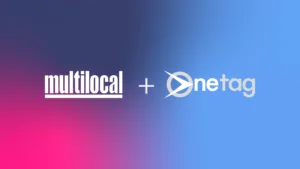If 2020 has been the year of first-party data and associated strategies, will 2021 be defined by so-called zero-party data? The term was coined by Forrester to describe any data that a customer proactively and deliberately shares – ie explicit, rather than implied, preferences.
NDA is talking to experts on how data strategies from brands and publishers are changing with the increased importance of first, and now zero, party data.
Travis Clinger. Senior Vice President, Addressability and Ecosystem at LiveRamp
Zero-party data is set to solve marketing’s biggest dilemma: the privacy/personalisation paradox. Audiences want transparency and control with their privacy protected, but they don’t want to sacrifice personalisation in the process.
Privacy and personalisation are not opposing forces however; if a consumer trusts that by sharing their personal data with a brand they will benefit from a better, more tailored experience then they will likely be more open to doing so.
But consumers must be in the driving seat during this process; they must maintain control over their data and how it’s used at all times.
Our vision for the future is an open, trusted ecosystem built on zero-party data that consumers consciously and willingly provide in order to receive the content or experiences they want.
The benefit of this for brands and publishers is huge – on the buy-side it allows brands to ensure every pound spent is more measurable and addressable.
On the publisher side, it will lead to an increased number of publisher-supported advertising models that help power the open internet and ensure publishers can continue to thrive and recognise new revenue opportunities through more addressable inventory.
What’s more, publishers can establish trusted and consented relationships with individuals who are enthusiastic about receiving personalised advertising and marketing from them.
It’s a win:win situation and one that marketers and publishers need to incorporate into strategies now.
With changes coming with Apple’s iOS14, third-party cookies already being deprecated on Safari/Firefox, and the looming deadline of the deprecation of third-party cookies on Chrome, it’s never been more imperative for brands and publishers to move their focus to user-level data.








